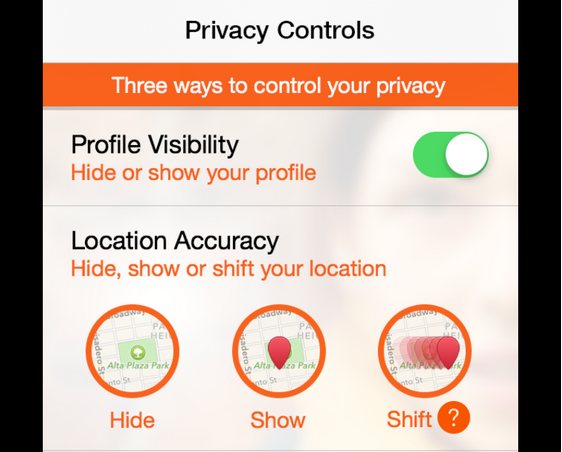Big Data: Cat-And-Mouse Escalates On Privacy Concerns, As NRF Retail Conference Looms

The retail big data scene is shifting forward again, as data companies debut new products and privacy advocates develop defenses, ahead of the National Retail Federation’s massive trade show in New York later this week.
Top retail data startup Euclid Analytics, which maps shopping behavior via customer smartphones, launched a free version of its product on Thursday, dubbed Euclid Express.
That free platform works off existing Wi-Fi networks in stores, allowing retailers to collect details on shopper visits, bounce traffic, and even window-shopping habits. The San Francisco company already collects 6 billion measurements daily, and it is active in 25 countries.
The move is a bid for market share in an increasingly competitive niche industry, where specialist data companies track the locations and habits of shoppers for major retailers, partnering with giants like Cisco Systems Inc. (NASDAQ:CSCO). Other players include ShopperTrak, which already publishes much-watched benchmark data, and smaller firms like New York’s Nomi, iInside and SOLOMO.
“It’s totally about increasing adoption and growing our footprint,” Euclid CEO Will Smith told International Business Times. “Last year we removed the need for hardware. Now we remove the need to pay us.”
Euclid will bear the costs of offering the free version, because it’s the “right strategic move,” he added.
Euclid’s clients have included luxury brand Nordstrom Inc. (NYSE:JWN) and other major brands, and its partners include Cisco and IT giant Juniper Networks Inc. (NYSE:JNPR). Euclid will hawk its wares at the NRF’s Big Show later this week, which 27,000 people and scores of global retailers attended in 2013.
Predictably, however, tracking shopper behavior meter-by-meter raises the hackles of privacy advocates, even if the data is anonymous and aggregated, as in Euclid’s case.
On Wednesday, dating website SinglesAroundMe, of all companies, said it had filed patents for Position-Shift, an invention that allows customers to scramble their smartphone’s GPS location, wrongfooting retailers and others wanting to pinpoint their location.
The technology, which the company claims is the first of its kind, wasn’t originally developed to combat intrusive retailers but rather was geared for sensitive online daters, company CEO Chris Klotz told IBTimes. It’s unclear whether the strategy will be effective against retailers’ sophisticated use of involuntary Bluetooth or Wi-Fi signals, sometimes tied to a phone’s unique MAC address.
But, added Klotz: “This can stretch right across many fields…This is a larger issue, too, with big data and Big Brother. People don’t want to be tracked.”

That patent, and the sentiment behind it, reflects an ongoing tug-of-war between industries intent on capturing consumer data, often without consent, and privacy advocates keen to control these advances. Retailers and pharmaceutical companies say data mining can benefit consumers by improving business practices; advocates say consumers must opt-in and better understand potential dangers.
Mobile device tracking isn’t presently regulated by the Federal Trade Commission. But the agency plans a panel on the subject in February, after retailers raised the issue by experimenting freely in 2013.
Lawmakers like New York Sen. Charles Schumer requested stricter rules in 2013, complaining that consumers were often unaware of tracking technology. That made retail tracking a “deceptive trade practice,” falling under the FTC’s jurisdiction, Schumer said then. The FTC declined to comment to IBTimes about Schumer’s letter, and didn’t respond to questions about plans for future regulation.
Washington, D.C., privacy think tank Future of Privacy Forum developed a code of conduct for location data companies in October 2013, working with Euclid, Schumer and others. Data companies would push for prominent signs informing customers they were tracked via their smartphones and telling them how to opt out.
But no centralized opt-out platform now exists. Shoppers must visit several different websites to earn the right to be left alone. There’s also no guarantee that retailers will agree to signs, either, since these could scare away shoppers.
“It’s early in the learning curve – retailers were not traditionally engaging people digitally in stores,” said Future of Privacy Forum executive director Jules Polonetsky to IBTimes.
Digital privacy engagement ranges from policies by giants like Apple Inc. (NASDAQ:AAPL), who is savvy about its iBeacon in-store marketing, to mom-and-pop stores, who may know next to nothing about privacy topics, according to Polonetsky.
There are signs of retail resistance already. The NRF trade body has said that the time for strict regulation could be premature, given that the industry is only starting to understand these technologies.
“If you can use data to help me, great; if you use data to spy on me, then I’m going to reject it. Those can be two sides of a coin,” said Polonetsky, contrasting approaches retailers could adopt at this stage.
Ultimately, retailers can’t be forced to inform shoppers about their business techniques, short of explicit regulation, though giant retailers like Macy’s Inc. (NYSE:M) have indicated support for pro-privacy measures.
Meanwhile, retail strategists are racing ahead for other ways to exploit big data.
Predictive analytics, which allow companies to forecast consumer behavior based on past transactions, will likely feature prominently at the NRF trade show.
Predictive data marketer AgilOne, who has signed up 100 customers, with its biggest one boasting $100 billion in yearly revenues, will showcase its predictive analytics tool at the Big Show.
They’ve developed a self-learning computer system that can predict, say, when a consumer will order her next dietary supplement or prescription drug, based on past purchases and nonpersonal medical information.
Retailers are increasingly “interested in trying to anticipate what their customers are going to be doing,” said AgilOne customer strategist Dietrich Chen, who is also a former part-time University of Miami business professor.
Predictive analytics initially came onto the corporate scene around 2010, in its infancy, though it took until 2012 or 2013 before it became a buzzword, Chen told IBTimes.
Predicting purchases allows marketers to push timely discounts to people’s emails and smartphones. AgilOne’s clients include traditional retailers and e-tailers, with the former collecting information via call centers and shopping till data.
Automation and ease of access may be the next goals for retailers and big data, according to industry players. Thousands of retailers may agree, if they adopt Euclid’s new free product. Euclid’s paid system, whose sales have soared in recent quarters, starts at $100 per store per month. The company steps up its international expansion later this year.
“Big data doesn’t have to be complicated and difficult to use,” said Euclid’s Smith. “It can be as easy as flipping a switch.”
© Copyright IBTimes 2024. All rights reserved.





















